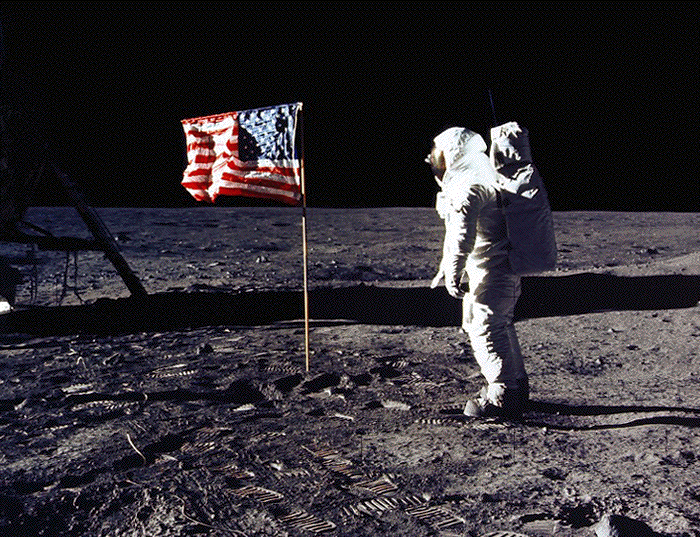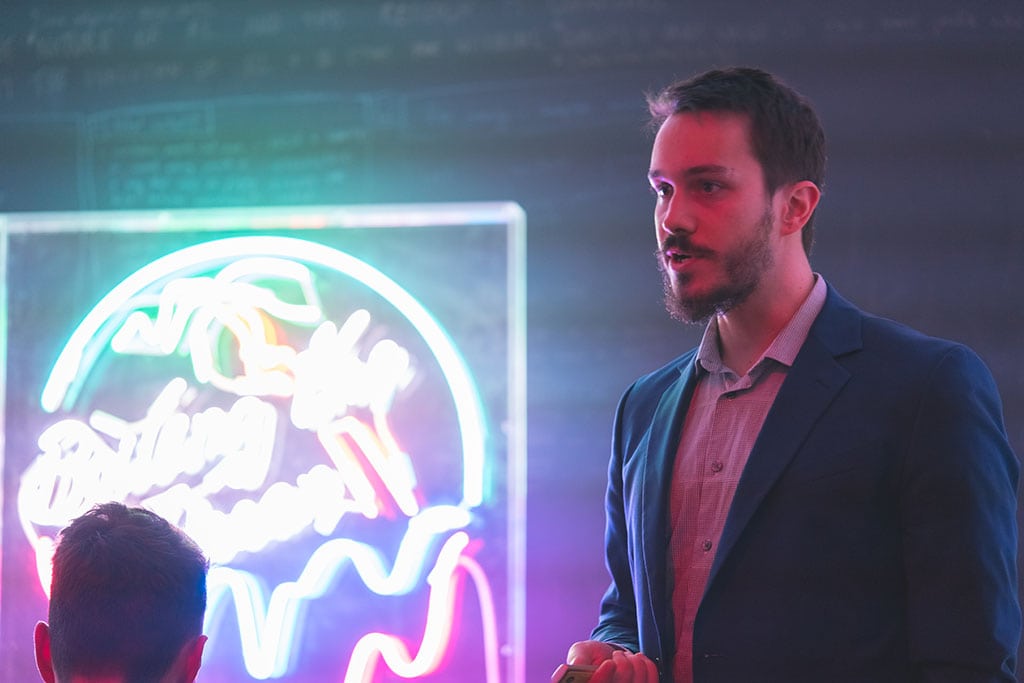This is the first edition of our new content series – Hustlin’ with Hassl. A series of interviews with extraordinary people about how they get shit done. We dive into the motivations, tactics, philosophy, inspiration and driving force behind why they do what they do and how they do it.
Troy McCann is the founder of Melbourne based startup, Moonshot. Moonshot fosters space-related commercial businesses through running incubators, accelerators, and investment opportunities around the world.
Hey Troy, how did you get into the space industry?
I’ve got a background in Computer Science and Electrical Engineering. Basically, I loved building things. I’ve always been fascinated with technology, as a child I felt like I had a superpower because of the incredible things that I could be done with technology. Things that most people thought were impossible.
While I was in university I discovered CubeSats, which are small satellites with similar components as your smartphone. They’re super powerful. I had a realisation that CubeSats could be commercially viable. This lead to starting my first business which involved helping SMEs and university teams to commercialise Deep Tech research. During this time, space was becoming more commercialised. It’s a bit of a buzzword these days but space was becoming democratised because of the lower price of entry. I then decided to sell these existing businesses and start my own space company, Moonshot.

How and why did you start Moonshot?
I always thought that businesses were boring. Something that only rich people did. But I soon realised that business is an addition to engineering. Engineering allowed you to solve someone’s problem and business allows you to solve problems at scale.
I loved space as a kid but I never thought that I was going to build a career around it until I started building the small satellites and that’s when I found my passion – democratising space.
These satellites were an example of technology miniaturisation where the average person could build a commercial space programme for less than the cost of a fast-food franchise. To me, that was something that was super powerful. So after a couple of years of working with this mobile Space Programme, I started to build up my own company.
I then got pushed into an elevator with Buzz Aldrin.
Buzz Aldrin?
It was in Melbourne in 2016. Buzz was doing a tour with National Geographic called, Mars live. I was at the event with a friend of mine, Andrea Boyd. Andrea works at the European Space Agency, she’s the person in the movies that answers too, “Houston, we’ve got a problem.”
She was in Melbourne for this tour with Buzz. And long story short, while Buzz was waiting for the elevator, she took the opportunity to push me into the elevator with him.
Before I had time to grasp what was happening, I was giving an elevator pitch to an Apollo 11 astronaut in a literal elevator – with no preparation.
Buzz introduced me to his son Andrew, who was working in the entrepreneurial space scene in Florida. After talking I realised that commercialising space is new all around the world even though a lot of space technology has practical uses on earth. Every corner of our economy, every part of society is really underpinned by infrastructure that is in space already. That’s where the idea for Moonshot came from.
What kind of technology are we building in space for use in Earth?
Everything. Not many people are living in space at the moment, so literally, everything in space is to benefit us here on earth.
We’re developing better, cheaper and smaller satellite systems to help us monitor and better understand the environment and the economy.
As we look towards settlements in space – living in remote locations that are currently inhospitable – we’re going to be developing solutions to challenges that also enable us to live in space, including here on earth too. If we can grow food in space – which we need to do to live there – then a side effect might be that we’ll eradicate famine on earth. Growing food near the moon or on Mars is like growing food in the middle of the most extreme and remote desert you can imagine.
I believe space is the key to eradicating poverty and other great challenges of our world today.
There is a whole bunch of chemical reactions that we can now do in space. Soon space will be a frontier for manufacturing entirely new medicines. Scientists are testing things like protein crystallisation for medicines and fibre-optic cables – reactions that you simply can’t produce here on earth.
How does Moonshot work?
We run a series of events, training programs and investment opportunities for space businesses and find talent within the space industry, in cities all across the world. These are predominantly startups. But we also work with bigger companies, whether it’s universities, entrepreneurs or large corporations. We’re here to help grow new space businesses and help the world transition to use space as a location to create opportunities.
How do you manage your tasks, people, work-life balance?
We have a big global network and we’ve people running our programmes all over the world. Which means that managing people and projects can be difficult. We use Hassl to help create processes and structures so that a new city director in any city can get a chapter up and running by using a template or tasks and timelines.
One of the projects we are working on at the moment starting a new chapter in Houston – getting some of our other city directors who are new to come along for that journey. And they’ll be doing that by participating on Hassl. As we do it with Houston, they’ll see the types of tasks in real-time and what it takes to actually build up a new chapter. Almost like a little blueprint so they can do it themselves.
What is a challenge you have with project management?
I have a bad habit of writing down too many tasks. Before using Hassl, I would create a to-do list with so many tasks that I would have to create another to-do list. And I wouldn’t be able to complete all of the tasks.
What productivity advice do you have to keep on top of your tasks and projects?
Find out how you can focus on the tasks that really matter. I think one of the things that I’m starting to learn is if I haven’t touched a task for over a month then maybe it’s time to just remove it. It’s obviously not that important.
It’s also important to focus on yourself – your physical and mental health.
What is your wake up routine?
It’s hard to have a routine sometimes. I spend about a third of my time overseas, a third of my time interstate, and the rest I’m at home in Melbourne.
When I’m home I wake up without an alarm around 6:00 am. The first thing I do is go to the gym. I’ll then come home, have breakfast, meditate for 10 minutes and get ready for work – sometimes I’ll watch some news on the ABC. I’m trying to spend a little less time thinking about work. Almost like a mental holiday.
Do you believe in mistakes? Or do you think it’s just all a process?
I think mistakes are really the only real way to learn. First-hand experience is always going to be better than reading it out of a book or someone else telling you how to do it. If you haven’t had the experience of going through and realising why that was a bad thing and how you can do it better next time – you’re unlikely to learn properly.
As an engineer and someone who’s grown up loving science and scientific method – mistakes are really the only way of proving something. You have an assumption. You’ve done an experiment, and it hasn’t worked. So, hopefully, your assumption has been something falsifiable.
I think that really does extend into a business. And basically everything for that matter. To become better people is to try to make as many small mistakes as possible. Lose the battle so you can win the war.
—–
This is the first edition of our new content series – Hustlin’ with Hassl. A series of interviews with extraordinary people about how they get shit done. We dive into the motivations, tactics, philosophy, inspiration and driving force behind why they do what they do and how they do it.







